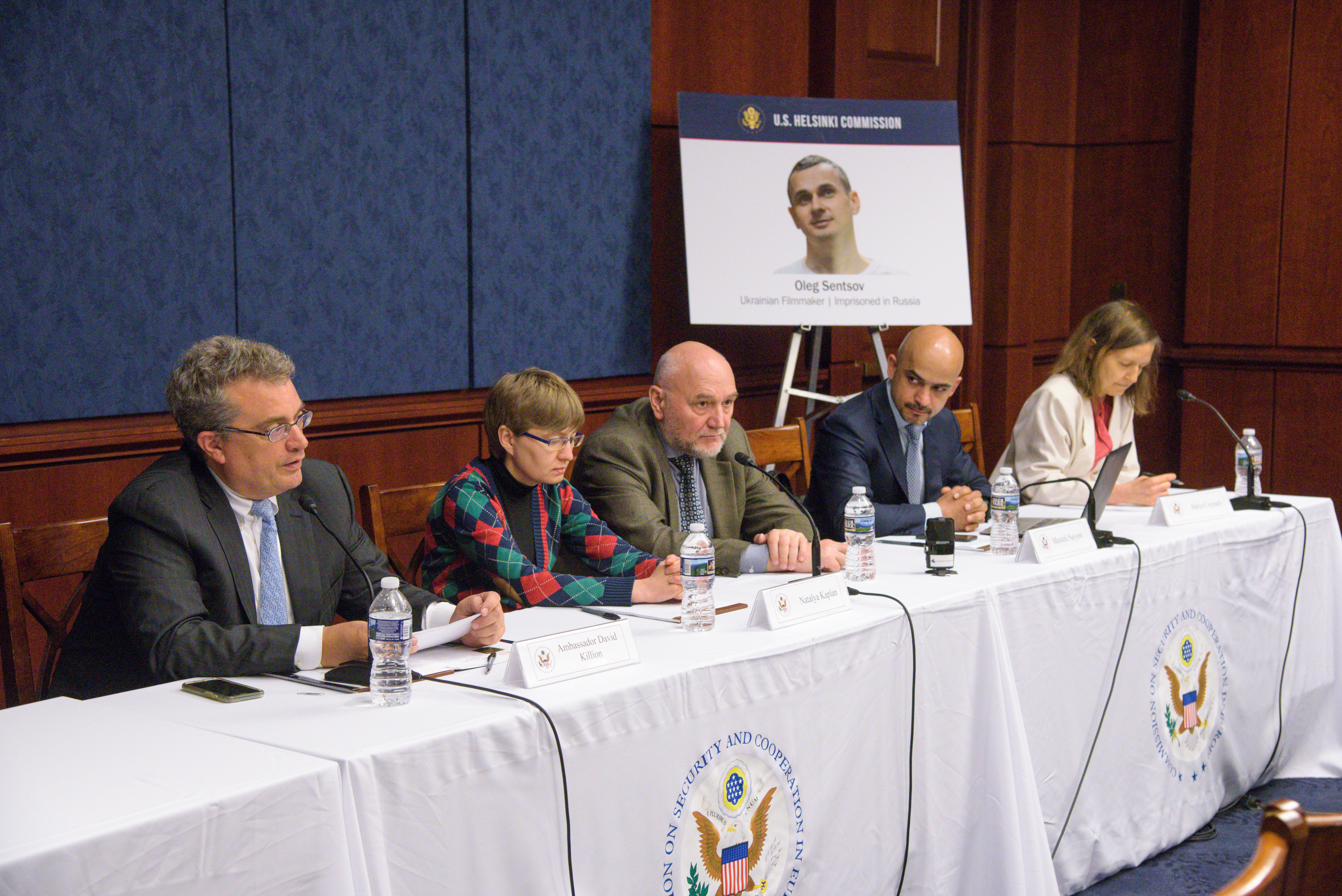On April 27, the U.S. Helsinki Commission held a briefing focusing on human rights violations against Ukrainian citizens. In particular, this hearing was used as a platform to raise awareness for Oleg Sentsov, a political prisoner being held in Siberia. Sentsov was honored by PEN America this year with their 2017 Freedom to Write award for his work exposing Russian human rights violations.
Panelist included Natalya Kaplan, cousin of Oleg Sentsov and campaigner for his freedom, and journalist in Kiev; Mustafa Nayyem, Member of Ukrainian Parliament and former journalist and early organizer of the 2013 Euromaidan protests; and Halya Coynash, spokesperson for Kharkiv Human Rights Protection Group. The panelists provided much context and background detailing Sentsov and others’ cases. Natalya Kaplan spoke to the audience about the terrible conditions her cousin faces in Siberia, including torture, while Mustafa Nayyem spoke about the need to pressure Russia publically to end these human rights abuses. Halya Coynash reminded the audience of the severity of this case by highlighting that Sentsov was the first Ukrainian to be so brazenly imprisoned after the Russian occupation of Crimea; in her eyes, this was the first time the full force of Russian government had been used to fabricate charges and host a show trial against a Ukrainian.
The panelists agreed that the media freedom situation in Russian-occupied territory is dire and only growing worse. Of greatest concern was the length to which Russia is willing to go in their efforts to arrest and prosecute journalists. Russia also sets a dangerous precedent with its recent attempts to foist Russian citizenship onto Ukrainians in Crimea, in efforts to undermine international court rulings and give legitimacy to its actions. When it comes to monitoring the human rights situation in Ukraine, the panelists expressed concerns with the lack of access to political prisoners and the inability to target individual Russians involved in creating the sham trials. The panelists believed that the ability to target individuals involved in these trials would be extremely helpful in de-escalating the situation, and they made many references to the Magnitsky Human Rights Accountability Act. Overwhelmingly, the response to these issues was a desire to work with Congress to strengthen and update the Magnistky Act, as well as broaden civil society and NGO engagment. Mustafa Nayyem expressed hope that NGOs, such as PEN America, would play a more pivotal role in helping prevent future repression.
News articles following the briefing expressed hope that there would be work within Congress to better address issues involving Ukrainian political prisoners.











